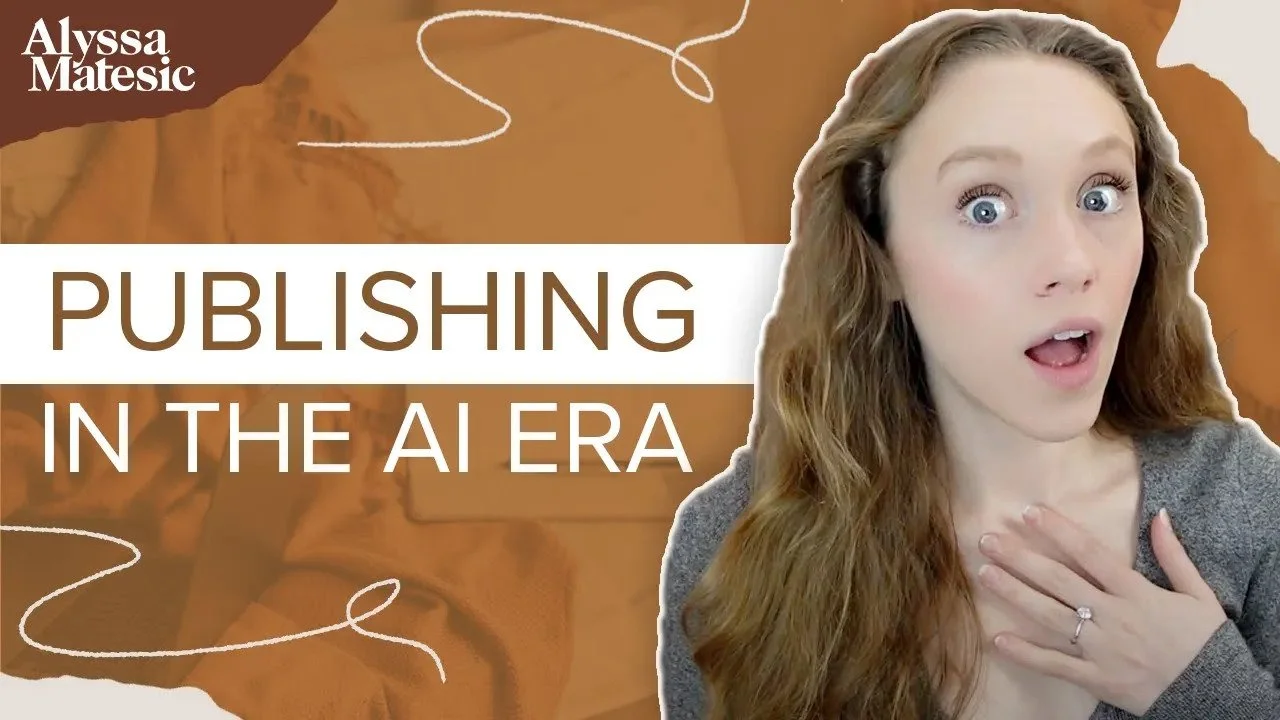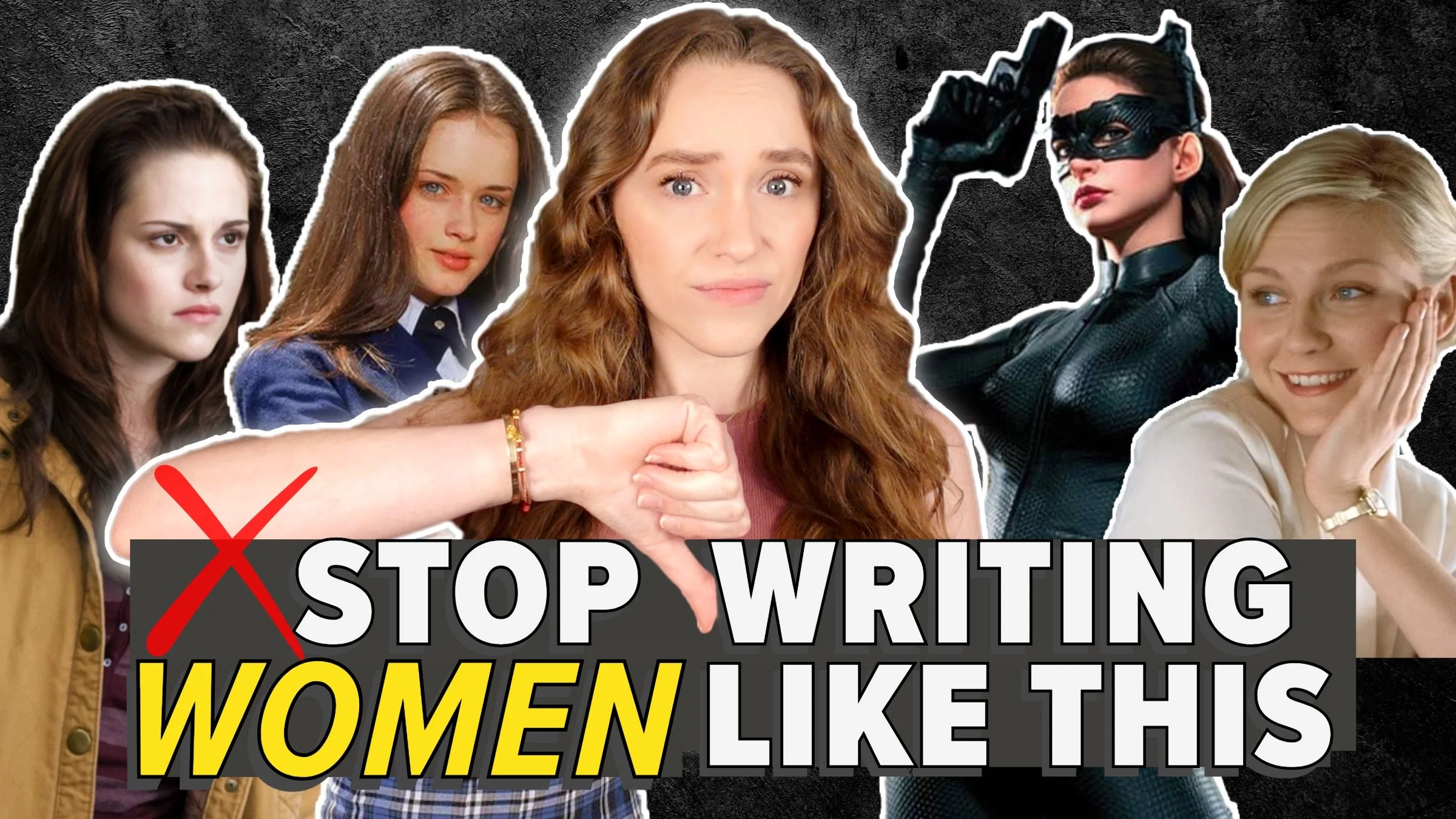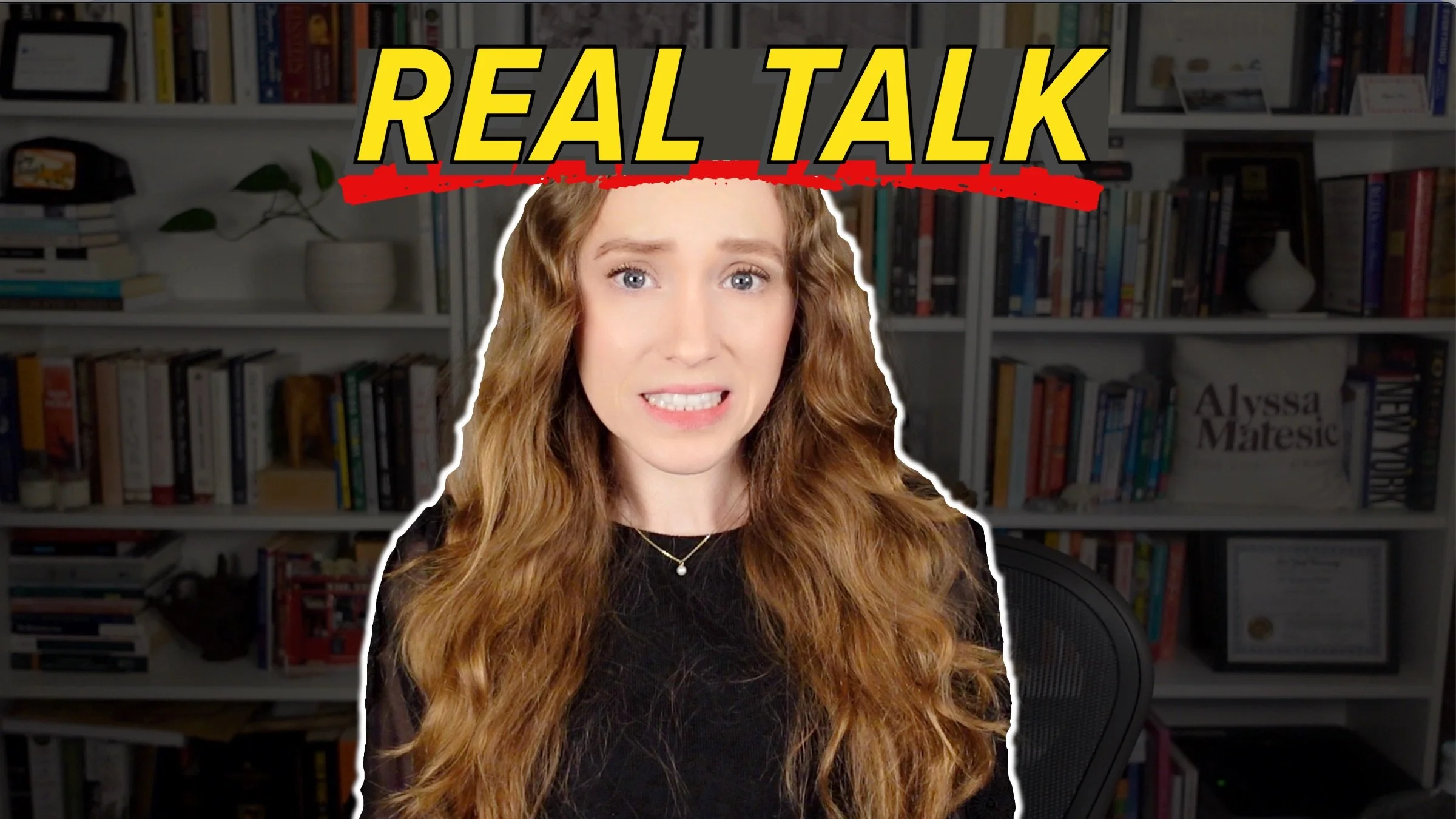ChatGPT and Publishing: 3 Ways Publishers Are Responding to AI
HIT PLAY OR READ THE POST BELOW:
As if the book industry wasn't already in enough tumult, conversations about AI, ChatGPT and publishing have thrown the book world another curveball.
Today, I want to talk about how the book publishing industry, which is notoriously very reluctant to change and slow to adapt to new technology, may be impacted by the rise of AI and ChatGPT. Are these technologies going to blow up the publishing industry as we know it, or will things continue to chug along more or less the way that they have for hundreds of years?
I am going to focus specifically on traditional book publishing via a major publishing house because that is the world I am most familiar with as a former literary agent employee and an employee at Penguin Random House. Here are three big takeaways about ChatGPT and publishing that I’m seeing discussed in the agent and editor community.
Agents and Editors Do Not Want AI-Generated Books
In conversations about ChatGPT and publishing, many agents and publishers are insisting that they do not want AI-generated books, at least at this time. As conversations about the capabilities of ChatGPT and AI are heating up across all industries, the commentary among book publishing professionals has pretty much been uniformly skeptical and reluctant. Across the board, many people who are in a curatorial or editorial role, such as editors at literary magazines or literary agents or publishers at Big Five houses, are expressing their disinterest in stories or books that are generated from AI.
Literary agent Kate McKean, who has a newsletter called Agents & Books, even did an entire installment dedicated to discouraging writers from using ChatGPT, either to generate their queries or their books entirely, and I wouldn't be surprised if we started seeing agencies and publishing houses stipulate that they are not interested in considering any material generated by AI.
Why is this the case, especially as AI grows more sophisticated and creates coherent and grammatically correct stories? At this point, I think it's pretty clear that the content generated by AI is not up to par, especially from a creative and artistic standpoint, to human-generated stories. The content generated by AI is pretty formulaic in its construction, and while it might create something that looks pretty decent and solid on the surface, the more you drill into it you might realize that it is actually lacking the depth and the nuance that a human writer brings to their work, which is very important when we're talking about publishing stories that are supposed to resonate with an audience. Often, it's not really saying much at all, and it's certainly not expressing itself in the prose as artistically as a human writer would.
Of course, as AI develops, the capabilities of chatbots are going to become more and more sophisticated, and I do think the publishing industry is going to have to figure out how to address that when the time comes. For instance, will it allow books that are AI-assisted, perhaps? I do think we need to see publishers take a stance on this pretty soon, and I would be surprised if decades down the line we see them continue to wholly reject AI. But, for now, at least until the capabilities become more sophisticated from an artistic perspective, we are seeing publishers and agents generally veer away from AI- and ChatGPT-generated content.
Publishers Are Experimenting with Other Use Cases
Even if publishers are not interested in AI-generated books, they are experimenting with other use cases for ChatGPT and publishing. There are a lot of nuts and bolts that go into creating a book, and there are potential use cases for streamlining the book publishing process, which is still quite manual and convoluted.
For example, audiobooks are a huge slice of industry profits and a major way that readers engage with stories, but there is a lot of labor and cost that goes into producing an audiobook, which is why not every single book that gets published ultimately gets made into an audiobook. Technologies that are able to generate human-sounding AI voices can help more books get audio editions, thus boosting sales and revenue for publishers via audiobooks as a format.
In a similar vein, it could also help streamline the translation process of stories so that books can get published in more and more markets. ChatGPT has shown to be incredibly useful for things like marketing copy, metadata and SEO, for instance, so all of the advertising and marketing collateral that goes into a book could definitely be streamlined as well. There's even talks in the industry about figuring out how AI could potentially personalize the reading experience of a particular book for a particular reader, which would be really interesting.
I saw a Tweet from publishing expert Jane Friedman recently that I thought was really cool; she mentioned that ChatGPT was really helpful for generating comparable titles, which are often very difficult for querying authors to come up with. So this could be another aspect that is fruitful. However, keep in mind that AI can generate titles and authors that are false. It can spit out completely incorrect information, so whatever it gives you, you definitely want to double check and make sure that that book actually exists and is actually a good comp for you.
Ultimately, there are ways ChatGPT and publishing could work hand-in-hand in the future. As the technology continues to evolve, so will publishing’s relationship with it.
Copyright and Bias Issues Need to Be Addressed
The last point I'm seeing discussed among publishing industry professionals regarding AI, ChatGPT and publishing is that copyright and bias issues need to be addressed before they can really embrace this technology in any capacity. Naturally, publishers are highly concerned with plagiarism, copyright infringement and intellectual property issues. These are big barriers in the conversation about AI currently because AI-generated content incorporates material from whatever data source it is using and thereby possibly take an idea from another story entirely. This could lead to really tricky legal problems or accusations of content being plagiarized.
There's also concern that AI could generate books in a certain author's style and that could lead to a bunch of knockoffs flooding the market that are of low quality, potentially devaluing the actual author's work. Think about what could happen if anyone could write the next installment of Lord of the Rings, for example, and there's just a ton of Lord of the Rings derivative content available. This aspect of AI-generated content definitely needs to be figured out, particularly if we're ever looking at a future in which AI-assisted or AI-generated books are to be consumed by a general readership.
Lastly, publishing is already grappling with a huge diversity and inclusion issue in that it is trying to bring more diverse representation to books that get published, especially by major publishing houses. Ultimately, AI is only as unbiased as the data that it is trained on, and knowing the state of the world as it is it is, likely most of that data is biased in one way or another. So, there's definitely concern that AI-generated books could perpetuate stereotypes, prejudices and biases that currently exist in the literature landscape. We're going to need to figure out a way to make AI not perpetuate problematic content.
Clearly, there is a lot for publishers to work out regarding AI, ChatGPT and publishing, but I hope this gave you an idea of what the current feelings are toward these technologies and the current state of the publishing industry. Of course, this situation is constantly evolving and will only continue to, so I'll be very curious to see how it all plays out.
Thanks so much for reading and happy writing!






